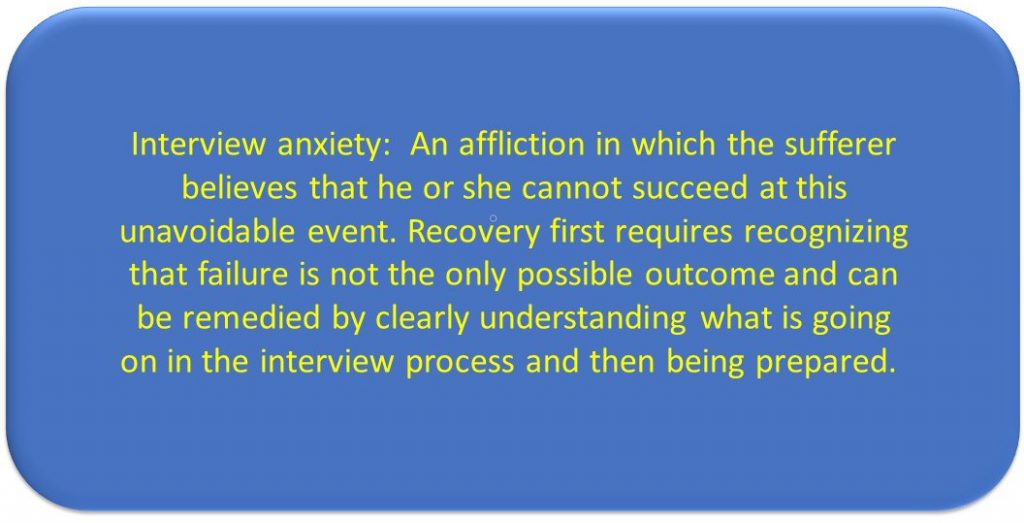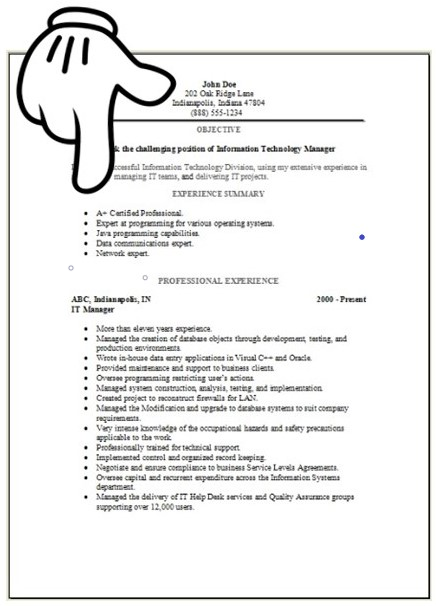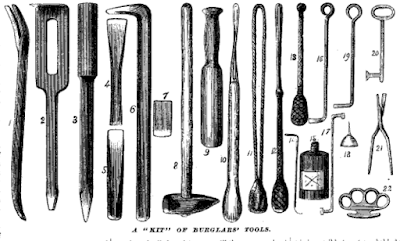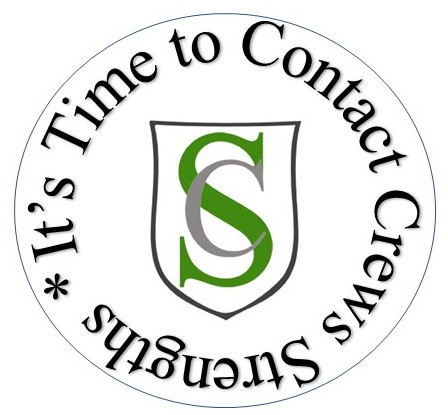Blog
It’s Time to Put Your Strengths to Work for Your Interview
Part 1

Job interviews scare the heck out of people. They make them anxious, worried, catatonic. Let’s call it “interview anxiety”. The victim of this affliction is persuaded to believe that she cannot succeed at this unavoidable event (everybody has to interview) and is probably setting herself up for failure.

Please note, failure is not the only possible outcome. Like all anxieties, interview anxiety can be remedied or at least ameliorated by the sufferer (interviewee) clearly understanding what is going on and being prepared.
The first step in overcoming interview anxiety is to understand a very important fact.
Interviews are stupid.
There. I said it.
Considering that interviews are used to hire people, it’s amazing that organizations are as successful as they are at finding competent workers. There are few more contrived situations than two strangers participating in interrogatory banter where one appears to have all the power. Sounds almost like being tortured or put on trial. However, if you understand what might be asked and prepare accordingly, you will most likely find the event to be less onerous and your success more likely. Plus, there is almost no chance of being thrown in jail.
Here is a positive thing that can be said about an interview. If you have been invited to an interview, you have already succeeded where others have failed. Remember, you are only being interviewed because there is serious consideration being given to you as a candidate. You have proven something by the mere fact that the interviewer is contemplating hiring you. Go ahead, pat yourself on the back.

The reason interviews seem to work is because the interview is not the only thing that determines who gets hired. Interviews are not cattle calls. You are only invited to an interview after the potential employer has reviewed your resume and maybe done a little more research about you. After the interview, references can be asked about you.
An interview is supposed to determine if you could be a good fit. Can the person interviewing you stand to see your face and hear your voice, in person or virtually, on a regular basis. It is also an opportunity for them to judge if your resume is an example of you putting your best foot forward or is a total work of fiction based vaguely on reality.
The truth is that more successful hiring would probably occur if an employer could bring you on for a few weeks and see how you performed. Ever notice how many people find jobs based on their internships. Unfortunately, few potential candidates can get away from their current job for a month or more to do this. Also, few employers feel like investing a great deal of time and energy into someone who would essentially be a temp.
This article is not about changing the hiring process or upending the talent acquisition world. Sorry, but you are stuck with interviewing, and it is best that you figure out how to make them work for you.
If you don’t like the interview process, you might find the following comforting. Some interviewers are competent and comfortable. Many other interviewers hate the process more than you do. These interviewers frequently have no idea what they are doing. They ask you, “Can you tell me a little bit about yourself?”. And you could say “Crabgrass, Tutankhamen and the 23 skidoo” and then describe your socks and they would roll on to the next HR prepared question, barely caring about your answer. In fact, their only concern would be to get through the horrid task and get back to making widgets or wallpaper or balancing the ledger or picking the wings off flies.
A good interviewer has talent and skill. A good interviewer places the candidate at ease. He shows interest and recognize that there is a human being across the table who deserves to be treated accordingly, whether a job offer is the outcome or not. He also has a realistic idea about what he is seeking for the job.
Unfortunately, you don’t get to pick the type of interviewer you are going to get. Whether dealing with a good or poor interviewer, your interests are best served by being prepared, thus making the interviewer’s job easier. If you prepare, you make their life easier. You provide them with the candidate they are looking for. The interviewer who hates the process will be relieved when you take the burden off them. The competent interviewer will feel her professionalism returned and her best instincts satisfied. You can tip the interview in your favor no matter which type of interviewer is sitting on the other side of the table.
How do you prepare?
Study the questions that you are going to be asked before the interview.
How are you going to find out what you are going to be asked?
Well? Just like for that chemistry exam back in the day, you could break into the office . . .

Victorian burglar tools – to break in to get . . . 
Interview tools – to break through to get the job
Oh, never mind. That never happened. Even if it did, the truth is that most interview questions fall into one of several categories. Knowing the type of questions and having a few prepared, but authentic answers will go a long way to prepare you for the real event.
Most interviews tend to follow a prepared plan. The questions are printed out for the interviewer. He knows what he is going to ask. Even if you don’t know the exact questions, you can prepare for types of questions. Many of the answers can be adjusted to fit more than one question.
The next installments of the “It’s Time” blog, will discuss types of interview questions with some representative questions as well as suggestions for answering them. Follow me on LinkedIn to be sure to get notified when that installment appears.
Remember, the interviewing process is a game. Just like any game, you need to know the rules and you need to know what strategy your opponent is using so you can be able to win.
Please let me know if you have found this post to be of interest. To make sure others are aware of your thoughts, please go back to this article in LinkedIn and like and comment on the actual post where the most people are likely to see it. Thanks for your kindness.
It’s time to stop hating your job.
Whether you need help with your resume, your job search or in putting your Strengths to work, you need to contact Crews Strengths.
Previous Posts
- “It’s Time for You to Ask the Questions!” - August 8, 2024
- What “Superpowers” are Hiding in Your Toolbox?: - May 29, 2024
- It’s Time to Put Your Strengths to Work for Your Interview – Part 4 - October 16, 2023
- It’s Time to Put Your Strengths to Work for Your Interview – Part 3 - August 21, 2023
- It’s Time to Put Your Strengths to Work for Your Interview – part 2 - July 20, 2023
- It’s Time to Put Your Strengths to Work for Your Interview - June 22, 2023
- It’s Time to Put Your References to Work - February 14, 2023
- It’s Time to Work Around Your Weaknesses - November 15, 2022
- It’s Time to Put Your Skills, Talents, Strengths (and even Weaknesses) to Work! (Once you figure out what they are). - October 13, 2022
- It’s Time to Put Your Strengths to Work: Why Hire a Coach? - August 1, 2022
- It’s Time to Put Your Strengths to Work: Rejection and the Job Search - June 25, 2022
- No One Deserves to HATE Their Job! : Your Solution to the “Great Resignation” - May 23, 2022
- It’s Time to Put Your Strengths to Work: Strengths and the Reentry Career Alliance Academy - March 3, 2022
- It’s Time to Put Your Resume to Work: Part 11. An Inventory of Your Career: Resume as Assessment - February 3, 2022
- Have Yourself a Merry Little Job Search: - November 23, 2021
- It’s Time to Put Your Resume to Work: Part 10. - October 21, 2021
- It’s Time to Put Your Resume to Work: Part 9 – Avoiding the Trash - August 25, 2021
- It’s Time to Put Your Resume to Work: Post 8. How Dressed Up Does Your Resume Need to Be? - July 20, 2021
- “It’s Time to Put Your Resume to Work” : Part 7: What to Do When You Don’t Meet All the Requirements - June 24, 2021
- “It’s Time to Put Your Resume to Work”: Part 6. Avoiding the Mundane, Boring, and Useless - May 26, 2021
- “It’s Time to Put Your Resume to Work”, Part 5 – Creating a Universal Resume (When you Don’t have All the Facts) - May 5, 2021
- “It’s Time to Put Your Resume to Work” – Part 4: Finding the Words (literally) - April 7, 2021
- BONUS – “It’s Time to Put Your Resume to Work”- Part 3a : What is the Correct Length for Your Resume? - March 25, 2021
- “It’s Time to Put Your Resume to Work”- Part 3 : The a la Carte or Customizable Resume - March 16, 2021
- It’s Time to Put Your Resume to Work – part 2 - February 9, 2021
- It’s Time to Put Your Resume to Work – part 1 - January 27, 2021
- Strengths Help You Hear the Music - October 20, 2020
- StrengthsFinder & the Ancient Philosopher - September 3, 2020
- StrengthsFinder Domains: A View of Your Strengths from 50,000 Feet - July 20, 2020
- Talents are Your Edge in a Job Search - June 25, 2020
- This Is Who You Are and That’s A Good Thing - May 22, 2020
- Introvert or Extrovert: A CliftonStrengths view - May 13, 2020
- Is It Time to Put Your “Superpowers” to Work? - April 10, 2020
- Who Are You? - April 3, 2020
